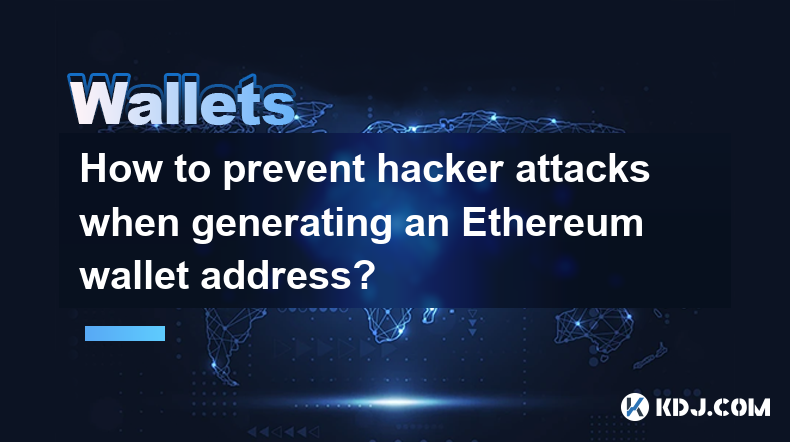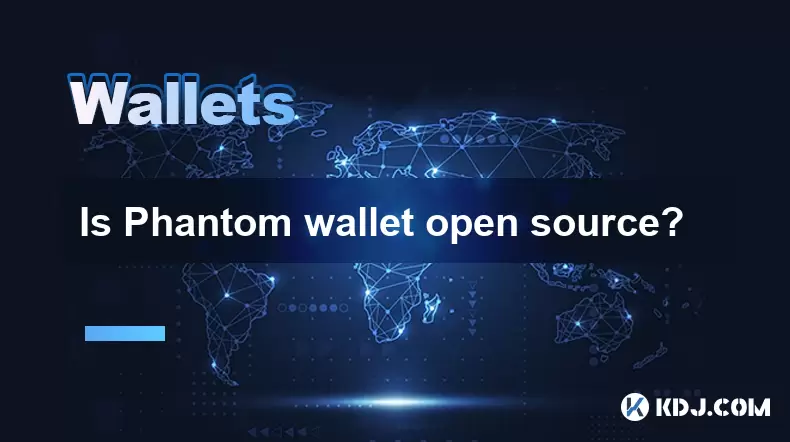-
 Bitcoin
Bitcoin $108,262.4325
-1.40% -
 Ethereum
Ethereum $2,518.2882
-2.94% -
 Tether USDt
Tether USDt $1.0003
-0.01% -
 XRP
XRP $2.2262
-1.71% -
 BNB
BNB $653.9254
-1.55% -
 Solana
Solana $148.1036
-3.11% -
 USDC
USDC $1.0000
0.01% -
 TRON
TRON $0.2829
-1.45% -
 Dogecoin
Dogecoin $0.1639
-4.82% -
 Cardano
Cardano $0.5742
-4.43% -
 Hyperliquid
Hyperliquid $38.9506
-3.95% -
 Sui
Sui $2.9040
-4.34% -
 Bitcoin Cash
Bitcoin Cash $484.8307
-2.62% -
 Chainlink
Chainlink $13.1971
-3.73% -
 UNUS SED LEO
UNUS SED LEO $9.0822
0.51% -
 Avalanche
Avalanche $17.8613
-4.01% -
 Stellar
Stellar $0.2385
-2.26% -
 Toncoin
Toncoin $2.7570
-3.88% -
 Shiba Inu
Shiba Inu $0.0...01145
-3.99% -
 Litecoin
Litecoin $86.9999
-2.43% -
 Hedera
Hedera $0.1538
-3.90% -
 Monero
Monero $313.7554
-2.03% -
 Polkadot
Polkadot $3.3681
-5.08% -
 Dai
Dai $1.0000
0.00% -
 Ethena USDe
Ethena USDe $1.0001
-0.01% -
 Bitget Token
Bitget Token $4.4401
-2.97% -
 Uniswap
Uniswap $6.9644
-8.41% -
 Pepe
Pepe $0.0...09666
-4.79% -
 Aave
Aave $266.5686
-5.04% -
 Pi
Pi $0.4713
-4.95%
How to prevent hacker attacks when generating an Ethereum wallet address?
Secure your Ethereum wallet by using strong passwords, unique seed phrases, reputable providers, and MFA. Regular software updates and vigilance against phishing are crucial for preventing irreversible cryptocurrency loss.
Mar 18, 2025 at 02:43 pm

Key Points:
- Understanding the vulnerabilities inherent in wallet generation.
- Secure hardware and software choices are paramount.
- Importance of strong, unique passwords and seed phrases.
- Utilizing reputable wallet providers and avoiding phishing scams.
- Regularly updating software and employing multi-factor authentication (MFA).
How to Prevent Hacker Attacks When Generating an Ethereum Wallet Address?
Generating an Ethereum wallet address might seem straightforward, but securing it against hacker attacks requires meticulous attention to detail. The process involves several critical steps, each susceptible to compromise if not handled properly. A compromised wallet address can lead to the irreversible loss of your cryptocurrency holdings.
The first line of defense lies in understanding where vulnerabilities exist. Many attacks target the software or hardware used during wallet creation. Malicious software can steal your seed phrase, a crucial element that allows access to your wallet. Weak passwords or reusing passwords across multiple platforms dramatically increase your risk.
Choosing secure hardware and software is essential. Avoid using public computers or untrusted networks for wallet generation. Opt for reputable wallet providers with a strong track record of security. Consider hardware wallets, offering an extra layer of protection by storing your private keys offline. These physical devices significantly reduce the risk of software-based attacks.
Password security is non-negotiable. Use a strong, unique password that's long, complex, and entirely different from any other password you use. Never reuse passwords, and utilize a reputable password manager to securely store and manage your credentials. Remember, a weak password is the easiest entry point for hackers.
Your seed phrase is the key to your cryptocurrency. Treat it with the utmost confidentiality. Never share it with anyone, even seemingly trustworthy individuals or support representatives. Write it down carefully, store it securely offline, and consider using multiple backups stored in separate, safe locations.
Be vigilant against phishing scams. Hackers often impersonate legitimate wallet providers or exchanges to trick users into revealing their seed phrases or login credentials. Always verify the legitimacy of any communication before providing any sensitive information. Check URLs carefully and be wary of unsolicited emails or messages.
Software updates are crucial for security. Regularly update your wallet software and operating system to patch known vulnerabilities. Ignoring updates leaves your wallet susceptible to exploits that hackers actively target. Keeping your software current is a fundamental aspect of minimizing your risk.
Implementing multi-factor authentication (MFA) adds another layer of security. MFA requires multiple forms of verification to access your wallet, significantly hindering unauthorized access. Enable MFA whenever it's available, as it adds considerable protection against brute-force attacks and phishing attempts.
The generation of an Ethereum wallet address is only the first step. The ongoing security of your wallet requires constant vigilance and the implementation of robust security practices. Neglecting these steps significantly increases your risk of becoming a victim of a cryptocurrency theft.
Common Questions:
Q: What is a seed phrase, and why is it so important?
A: A seed phrase is a list of words that acts as a master key to your Ethereum wallet. It's used to recover access to your wallet if you lose your password or your device is damaged. Its security is paramount; if compromised, your funds are at risk.
Q: Are hardware wallets truly safer than software wallets?
A: Yes, hardware wallets generally offer superior security because they store your private keys offline, making them much less vulnerable to malware and hacking attempts. Software wallets, while convenient, are more susceptible to online attacks.
Q: How often should I update my wallet software?
A: Update your wallet software as soon as updates become available. Security patches often address vulnerabilities that hackers could exploit, so keeping your software up-to-date is crucial.
Q: What are some signs of a phishing attempt?
A: Phishing attempts often involve suspicious emails or websites mimicking legitimate services. Look for inconsistencies in URLs, unusual email addresses, requests for personal information, and grammatical errors. Never click on links from unknown sources.
Q: What should I do if I suspect my wallet has been compromised?
A: If you suspect a compromise, immediately change your password, revoke any connected devices, and contact your wallet provider's support team. Consider contacting law enforcement if you've suffered significant financial losses.
Disclaimer:info@kdj.com
The information provided is not trading advice. kdj.com does not assume any responsibility for any investments made based on the information provided in this article. Cryptocurrencies are highly volatile and it is highly recommended that you invest with caution after thorough research!
If you believe that the content used on this website infringes your copyright, please contact us immediately (info@kdj.com) and we will delete it promptly.
- Bitcoin's Pattern Break: Are HODLers the Key to the Next Surge?
- 2025-07-04 18:50:12
- Bitcoin Price, Trump's Bill, and the $150K Dream: A NYC Take
- 2025-07-04 19:50:12
- Ethereum, LILPEPE, and the July Bounce: Will Pepe Steal ETH's Thunder?
- 2025-07-04 19:10:12
- Binance Institutional Loans: Unlocking 4x Leverage and Zero Interest for Whales
- 2025-07-04 19:15:12
- Bitcoin Bull Run: Analysts Eye Peak in Late 2025?
- 2025-07-04 19:20:13
- Pepe Indicators, Bullish Forecast: Can the Meme Coin Rally?
- 2025-07-04 19:25:12
Related knowledge

How to cancel a pending transaction in Phantom wallet?
Jul 03,2025 at 07:21pm
Understanding Pending Transactions in Phantom WalletA pending transaction in the Phantom wallet occurs when a user initiates a transfer or interaction with the Solana blockchain, but it hasn't yet been confirmed by the network. This can happen due to various reasons such as low transaction fees, network congestion, or incorrect gas settings. It's import...

How to see the estimated value of my tokens in Phantom wallet?
Jul 04,2025 at 12:21am
What is Phantom Wallet?Phantom wallet is one of the most popular cryptocurrency wallets designed for the Solana blockchain. It allows users to store, send, receive, and manage various tokens built on Solana, including SPL tokens and NFTs. The wallet offers a user-friendly interface, making it accessible for both beginners and advanced users in the crypt...

How to lock my Phantom wallet extension?
Jul 03,2025 at 11:14am
What Is the Phantom Wallet and Why Lock It?The Phantom wallet is a popular non-custodial cryptocurrency wallet designed for interacting with the Solana blockchain. Supporting both browser extensions and mobile apps, Phantom allows users to store, send, receive, and stake SOL tokens, as well as interact with decentralized applications (dApps). Securing y...

Does Phantom wallet offer two-factor authentication (2FA)?
Jul 03,2025 at 09:00am
Understanding Phantom Wallet and Its Security FeaturesPhantom wallet is a widely used non-custodial cryptocurrency wallet that supports the Solana blockchain. It allows users to store, send, receive, and interact with decentralized applications (dApps) seamlessly. As security is a top priority for any crypto wallet user, security features like two-facto...

What is "rent" on Solana and how does it affect my Phantom wallet?
Jul 02,2025 at 08:35pm
Understanding 'Rent' on SolanaIn the context of Solana, the term 'rent' refers to a storage fee that users pay for maintaining data on the blockchain. Unlike Ethereum, where storage costs are paid once via gas fees during contract deployment, Solana implements a recurring cost model to ensure efficient usage of network resources. This means that any acc...

Is Phantom wallet open source?
Jul 03,2025 at 12:29am
What is Phantom Wallet?Phantom wallet is a non-custodial cryptocurrency wallet primarily designed for the Solana blockchain. It allows users to store, send, receive, and interact with decentralized applications (dApps) on the Solana network. The wallet is available as a browser extension and mobile application, offering a seamless experience for both be...

How to cancel a pending transaction in Phantom wallet?
Jul 03,2025 at 07:21pm
Understanding Pending Transactions in Phantom WalletA pending transaction in the Phantom wallet occurs when a user initiates a transfer or interaction with the Solana blockchain, but it hasn't yet been confirmed by the network. This can happen due to various reasons such as low transaction fees, network congestion, or incorrect gas settings. It's import...

How to see the estimated value of my tokens in Phantom wallet?
Jul 04,2025 at 12:21am
What is Phantom Wallet?Phantom wallet is one of the most popular cryptocurrency wallets designed for the Solana blockchain. It allows users to store, send, receive, and manage various tokens built on Solana, including SPL tokens and NFTs. The wallet offers a user-friendly interface, making it accessible for both beginners and advanced users in the crypt...

How to lock my Phantom wallet extension?
Jul 03,2025 at 11:14am
What Is the Phantom Wallet and Why Lock It?The Phantom wallet is a popular non-custodial cryptocurrency wallet designed for interacting with the Solana blockchain. Supporting both browser extensions and mobile apps, Phantom allows users to store, send, receive, and stake SOL tokens, as well as interact with decentralized applications (dApps). Securing y...

Does Phantom wallet offer two-factor authentication (2FA)?
Jul 03,2025 at 09:00am
Understanding Phantom Wallet and Its Security FeaturesPhantom wallet is a widely used non-custodial cryptocurrency wallet that supports the Solana blockchain. It allows users to store, send, receive, and interact with decentralized applications (dApps) seamlessly. As security is a top priority for any crypto wallet user, security features like two-facto...

What is "rent" on Solana and how does it affect my Phantom wallet?
Jul 02,2025 at 08:35pm
Understanding 'Rent' on SolanaIn the context of Solana, the term 'rent' refers to a storage fee that users pay for maintaining data on the blockchain. Unlike Ethereum, where storage costs are paid once via gas fees during contract deployment, Solana implements a recurring cost model to ensure efficient usage of network resources. This means that any acc...

Is Phantom wallet open source?
Jul 03,2025 at 12:29am
What is Phantom Wallet?Phantom wallet is a non-custodial cryptocurrency wallet primarily designed for the Solana blockchain. It allows users to store, send, receive, and interact with decentralized applications (dApps) on the Solana network. The wallet is available as a browser extension and mobile application, offering a seamless experience for both be...
See all articles

























































































